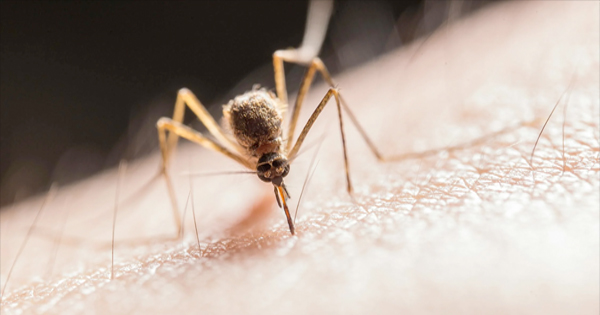
The Massachusetts Department of Public Health (MDPH) announced on Friday, September 27th, 2024 that West Nile virus (WNV) has been detected in mosquitoes collected from Lynn. In 2023, 10,765 mosquito samples were tested for WNV and 164 samples were positive. Lynn had 0 WNV positive mosquito samples identified in 2023.
WNV is most commonly transmitted to humans by the bite of an infected mosquito. The mosquitoes that carry this virus are common throughout the state and are found in urban as well as more rural areas. While WNV can infect people of all ages, people over the age of 50 are at higher risk for severe infection.
By taking a few, common sense precautions, people can help to protect themselves and their loved ones:
Avoid Mosquito Bites
- Apply Insect Repellent when you go outdoors. Use a repellent with DEET (N, N-diethyl-m-toluamide), permethrin, picaridin (KBR 3023), IR3535 or oil of lemon eucalyptus [p-methane 3, 8-diol (PMD)] according to the instructions on the product label. DEET products should not be used on infants under two months of age and should be used in concentrations of 30% or less on older children. Oil of lemon eucalyptus should not be used on children under three years of age. Permethrin products are intended for use on items such as clothing, shoes, bed nets and camping gear and should not be applied to skin.
- Clothing Can Help reduce mosquito bites. Although it may be difficult to do when it’s hot, wearing long-sleeves, long pants and socks when outdoors will help keep mosquitoes away from your skin.
- Be Aware of Peak Mosquito Hours – The hours from dusk to dawn are peak biting times for many mosquitoes. When risk is increased, consider rescheduling outdoor activities that occur during evening or early morning. If you are outdoors at any time and notice mosquitoes around you, take steps to avoid being bitten by moving indoors, covering up and/or wearing repellant.
Mosquito-Proof Your Home
- Drain Standing Water – Many mosquitoes lay their eggs in standing water. Limit the number of places around your home for mosquitoes to breed by either draining or getting rid of items that hold water. Check rain gutters and drains. Empty any unused flowerpots and wading pools and change water in birdbaths frequently.
- Install or Repair Screens – Some mosquitoes like to come indoors. Keep them outside by having tightly-fitting screens on all your windows and doors.
While the Lynn Public Health Division continues to work closely with the MDPH and other agencies, more resources can be found on our web page: www.Lynnma.gov/city_government/departments/publichealth
Information about WNV and reports of current and historical WNV virus activity in Massachusetts can be found on the MDPH website at: www.mass.gov/dph/mosquito.
El Departamento de Salud Pública de Massachusetts (MDPH por sus siglas en inglés) anunció el viernes 27 de septiembre de 2024 que el virus del Nilo Occidental (WNV por sus siglas en inglés) ha sido detectado en mosquitos recogidos en Lynn. En 2023, se analizaron 10,765 muestras de mosquitos para detectar el WNV y 164 muestras dieron positivas. Lynn obtuvo 0 muestras de mosquitos positivas al WNV identificadas en 2023.
El WNV se transmite más comúnmente a los humanos por la picadura de un mosquito infectado. Los mosquitos que portan este virus son comunes en todo el estado y se encuentran tanto en áreas urbanas como en áreas más rurales. Mientras el WNV puede infectar a personas de todas las edades, las personas mayores de 50 años corren mayor riesgo de sufrir una infección grave.
Tomando algunas precauciones de sentido común, las personas pueden ayudar a protegerse y proteger a sus seres queridos:
Evite las Picaduras de Mosquitos:
- Aplique Repelente de Insectos cuando salga al aire libre. Use un repelente con DEET (N, N-diethyl-m-toluamida), permetrina, picaridina (KBR 3023), IR3535 o aceite de eucalipto limón [p-metano 3, 8-diol (PMD)] según las instrucciones de la etiqueta del producto. Los productos con DEET no deben utilizarse en bebés menores de dos meses y deben utilizarse en concentraciones del 30% o menos en niños mayores. El aceite de eucalipto limón no debe ser utilizado en niños menores de tres años. Los productos de permetrina están destinados a usarse en prendas como ropa, zapatos, mosquiteros y equipo para acampar y no debe aplicarse sobre la piel.
- La Ropa Puede Ayudar a reducir las picaduras de mosquitos. Aunque puede ser difícil hacerlo cuando hace calor, usar mangas largas, pantalones largos y medias cuando está al aire libre ayudará a mantener a los mosquitos alejados de su piel.
- Esté Atento a las Horas Pico de Mosquitos – Las horas desde el anochecer al amanecer son las horas pico de picaduras de mosquitos. Cuando el riesgo aumenta, considere reprogramar las actividades al aire libre que ocurren durante la tarde o temprano por la mañana. Si está al aire libre en cualquier momento y nota mosquitos a su alrededor, tome medidas para evitar ser picado moviéndose, cubriéndose y/o usando repelente.
Haga su Hogar a Prueba de Mosquitos
- Drene el Agua Estancada – Muchos mosquitos ponen sus huevos en agua estancada. Limite el número de lugares alrededor de su hogar para que los mosquitos se reproduzcan, ya sea drenando o deshaciéndose de los elementos que retienen agua. Revise las canaletas de desagüe de lluvia. Vacíe cualquier recipiente de flores y piscinas de poca profundidad y cambie el agua a los bebederos para pájaros con frecuencia.
- Instale o Repare las Mallas o Mosquiteros de Ventanas – A algunos mosquitos les gusta entrar a la casa. Manténgalos fuera colocando mallas o mosquiteros bien ajustados en todas las ventanas y puertas.
Mientras la División de Salud Pública de Lynn continúa trabajando de cerca con la MDPH y otras agencias, se pueden encontrar más recursos en nuestra página web: www.Lynnma.gov/city_government/departments/publichealth
La información sobre WNV y reportes de la actividad actual e histórica del virus WNV en Massachusetts se puede encontrar en la página web de la MDPH en: www.mass.gov/dph/mosquito.
The above press release was submitted to us by the City of Lynn.
If you have a news story that you would like to share, please contact us via email or call 781-780-9460.

